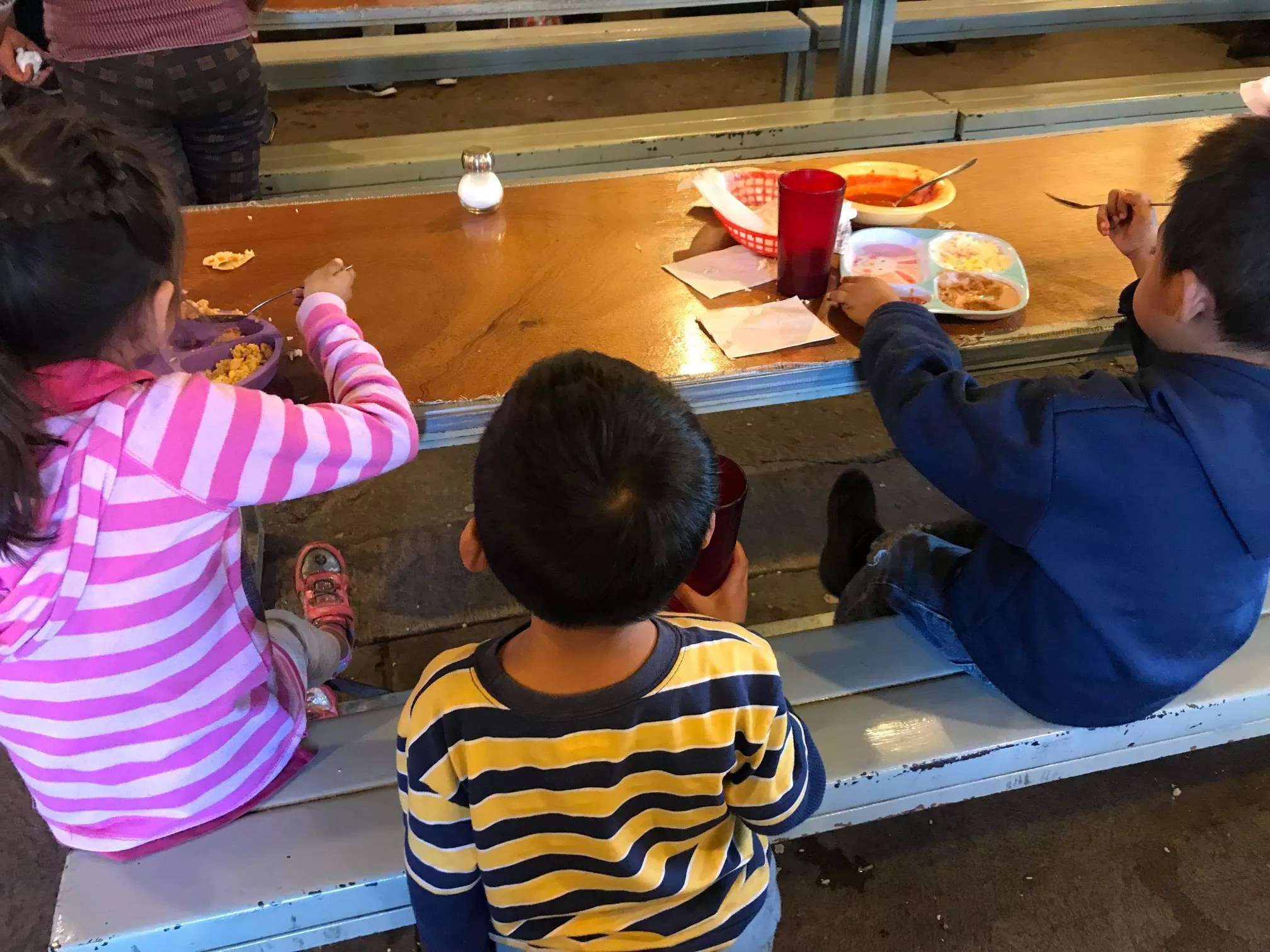
Kino Border Initiative

Audio By Carbonatix
Two women who arrived at the Arizona border by way of Nogales and were transferred to Texas under the expansion of the government’s controversial “Remain in Mexico” program recently have returned to the Mexican border town, according to Kino Border Initiative. They’re the first known people to travel back to Nogales since the federal government implemented the program along this stretch of the Southwest border.
The two asylum-seekers returned to Nogales after allegedly experiencing violence in Juárez, the designated Mexican city to which they were removed to wait out their asylum claim after applying for asylum in El Paso, Texas.
Despite journeying back to a part of Mexico which they believe may offer more safety, the women will still eventually need to return this coming spring to Juárez, and then the port of entry in El Paso, for their asylum hearings under new Trump administration rules.
On Monday, Kino Border Initiative, a binational aid organization that researches the number of people deported along the Arizona-Sonora border, said they had previously aided the two women prior to their transfer to El Paso, which occurred after the U.S. Department of Homeland Security expanded its Migrant Protection Protocols program to the entire Arizona border last month.
Under the expansion of the program, people claiming asylum in the Tucson sector are being shuttled out of state some 300 miles to Texas and forced to wait out their claims in Mexico.
The first known removals from the Tucson sector of Arizona under the MPP program began a week ago, according to a Customs and Border Protection announcement on December 5, with the government busing nine Venezuelans, including three families, who arrived at the Nogales port of entry to the Texan port in El Paso.
Upon reaching El Paso, migrants seeking refuge undergo interviews to determine if they’d be at risk in Mexico, and if not, are deported to the border city of Juárez, Mexico, where many live in makeshift shelters while their asylum claims are considered.
The two women who arrived back in Nogales previously had been waiting there under Trump’s “metering” program, which also requires some asylum-seekers to wait in Mexico by limiting the number of people who can request asylum at U.S. ports of entry each day. The two women, who are from Venezuela, first arrived at a Nogales port of entry three months ago and put their name on a waiting list to have their asylum claim heard. After the U.S. government sent word that they would have a hearing, they were asked to report to the Nogales port of entry, and were then bused to El Paso under the expanded MPP program. After claiming asylum in El Paso, they were subsequently removed to Juárez to wait for their hearing.
They said they’d experienced an assault almost immediately after their arrival in Juárez, according to the Kino Border Initiative. They journeyed back to Nogales shortly after and reported on December 9 what happened to Kino Border Initiative representatives at the organization’s Comedor, a soup kitchen at which they’d received meals prior to their transfer.
“They came back to Nogales because I think they felt safer,” said Katie Sharar, director of communications at Kino Border Initiative. The organization declined to provide the names of the women, citing client privacy. While they previously had been in Nogales, they “had a friend there who could help them with housing,” she said.
This is the first report of migrants returning to this stretch of the Arizona-Mexico border after the forced move under the MPP program, which is commonly called “Remain in Mexico.”
Since MPP’s start along parts of the southern border in January, the estimated 50,000 asylum-seekers now waiting in Mexican border towns – none of which are along the Arizona border – have become an easy target for criminals.
Many asylum-seekers and migrants have faced extreme levels of violence, with at least 636 reports of rape, kidnapping, and assault filed since MPP’s start earlier this year, according to a new report from Human Rights First released on December 5.
Acting CBP Commissioner Mark Morgan has called reports of violence against the asylum-seekers “anecdotal,” and previously stated that a U.S. delegation who visited the Mexican border cities deemed that “the safety was okay.”
The Trump administration’s stated goal of the program is to deter migration, after the United States saw an unprecedented number of asylum-seeking families from Central America earlier this year.
Nogales, Sonora, which has the institutional support of longstanding humanitarian aid organizations like Kino Border Initiative, has become an attractive hub for migrants arriving to the U.S. border, particularly under administrative policies like metering, and under early implementations of MPP along other parts of the southern border that did not, at first, include Arizona.
It’s too soon to tell if many more people will return to the city following Remain in Mexico’s expansion. Kino Border Initiative acknowledges there may be others who have already returned to Nogales after being transferred to Juárez – the Comedor currently serves about 3,000 people.
“And I wouldn’t suspect there’d be a huge number of others already. While I don’t know a ton about these women’s situation, I do know that they were able to rent an apartment, which suggests a slightly higher level of access to resources,” Sharar said. “For people who don’t have that [in Juárez], who are staying in the shelters and really economically marginalized, they’re not going to be able to make that transition. Just the bus fare is too high.”